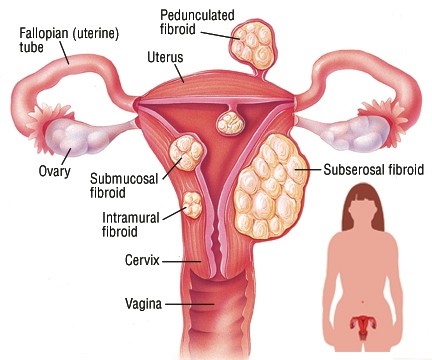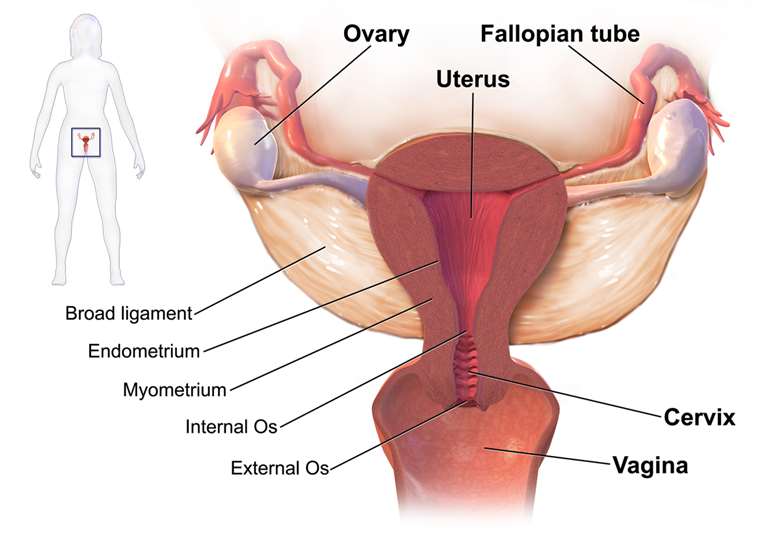Gynecologic Cancer related Vaccine Development Services
Creative Biolabs is a world leader in the field of cancer vaccine development. With our extensive experience and advanced platform, we are therefore confident in offering the best vaccine development services for different types of gynecologic malignancies including Ovarian Cancer, Endometrial Cancer vaccine, Cervical Cancer, Vulvar Cancer and Vaginal Cancer. We guarantee the finest results for our customers all over the world.

For the most part, gynecological cancers can be treated for cure. As with the majority of solid tumor cancers, if gynecologic cancers are discovered at an early stage, surgery can be curative, and other treatments, such as radiotherapy or chemotherapy may be given post-operatively to consolidate treatment. All modalities of treatment can be considered in order to palliate symptoms and control disease growth, even if cure is not possible. As such, a multidisciplinary approach to the treatment of gynecologic cancers is necessary.
The human papillomavirus (HPV) has been identified as the etiologic agent driving much of the neoplasia observed in the lower female reproductive tract. Combined with the advent of vaccination, will likely have sweeping repercussions on the incidence of cervical, vulvar, and vaginal carcinoma.
Ovarian Cancer
Ovarian cancer is a cancer that forms within an ovary, which results in abnormal cells that can invade or spread to other parts of the body. Epithelial ovarian cancer (EOC) accounts for 140,000 deaths annually worldwide and is the leading cause of gynecologic cancer-related mortality in the United States. The major subtypes of ovarian carcinomas include endometrioid carcinoma (EC), high-grade serous carcinoma (HGSC), low grade serous carcinoma (LGSC), clear cell carcinoma (CCC), and mucinous carcinoma (MC).

Endometrial Cancer
Endometrial cancer is a cancer that arises from the endometrium (the lining of the uterus or womb). It is the result of the abnormal growth of cells that have the ability to invade or spread to other parts of the body. Endometrial cancer is the most common gynecologic malignancy in developed countries. Vaginal bleeding or spotting in women after menopause occurs in 90% of endometrial cancer. Treatment may include surgery, chemotherapy, radiotherapy and hormonal therapy.
Cervical Cancer
Cervical cancer is a cancer arising from the cervix. It is due to the abnormal growth of cells that have the ability to invade or spread to other parts of the body. HPVs cause approximately 30% of malignancies attributable to specific infections, including cancers of the cervix, vagina, vulva, anus, and oropharynx. Despite the existence of preventive HPV vaccines and screening methods to detect HPV, cervical cancer remains the second largest cause of cancer mortality in women in low resource settings.
Vulvar Cancer
Vulvar cancer is a malignant, invasive growth in the vulva or the outer portion of the female genitals. The labia majora are the most common site involved representing about 50% of all cases, followed by the labia minora. There has been a striking increase in the incidence of vulvar carcinoma over the past 30 years, especially in younger women. The observed increase in younger women could be due to a higher incidence of infection of the lower genital tract with human papillomavirus or it may be explained by better diagnostic procedures or both.
Vaginal Cancer
Vaginal cancer is a cancer that forms in the tissues of the vagina. There are two primary types of vaginal cancer: squamous-cell carcinoma and adenocarcinoma. Primary vaginal cancer is rare in the general female population and is usually a squamous-cell carcinoma. Metastases are more common. Vaginal cancer occurs more often in women over age 50 but can occur at any age, even in infancy. It often can be cured if found and treated in early stages. Surgery alone or surgery combined with pelvic radiation is typically used to treat vaginal cancer.
Creative Biolabs is a leader in the field of vaccine development and has focused on the cancer vaccines for years. We have experts who are able to help you with the vaccine development for different types of gynecologic malignancies. If you are interested in our services, please contact us for more details.
All of our products can only be used for research purposes. These vaccine ingredients CANNOT be used directly on humans or animals.


